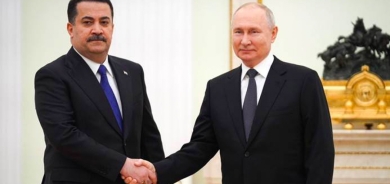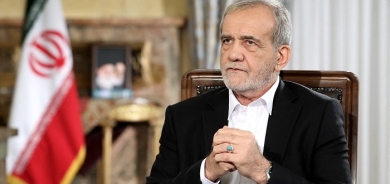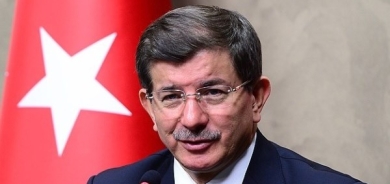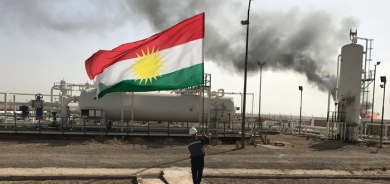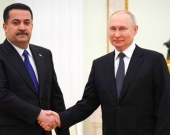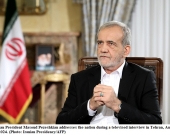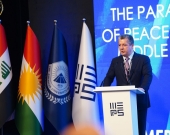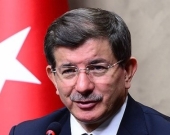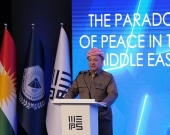US reaffirms commitment to Iranian nuclear talks, despite Iran’s rejection

Already on Feb. 18, the US said it was ready to participate in such discussions, along with the signatories to the nuclear deal: Iran, plus what is known as the P-5: the five permanent members of the UN Security Council, which, in addition to the US, include Britain, China, France, Russia, while the “+1” is Germany.
Iran’s first response to the invitation, issued by the European Union (EU), was only that it was studying the invitation. On Sunday, Foreign Ministry spokesman, Saeed Khatibzadeh, finally gave Iran’s reply. He issued a statement, saying, “Iran does not consider this the time to hold an informal meeting with these countries.”
The US reaction to the Iranian rejection has been muted. “We are disappointed at Iran’s response,” Price told journalists on Monday, “but we remain ready to re-engage in meaningful diplomacy to achieve a mutual return to compliance under the JCPOA [Joint Comprehensive Plan of Action, the formal name of the nuclear deal.]”
“We’ll be consulting our P5+1 partners on the best way forward,” Price added, as he affirmed that “resumption of a compliance can’t happen without all sides discussing the details.”
Price also suggested that the US was open to other possible formats for such discussions.
“If there are other ideas for ways in which we can engage” in what Price described as “this principled, clear-eyed diplomacy” in “coordination with our closet allies and partners,” we are “not dogmatic about the form.”
Whether Price was responding to a proposal put forward by another party was unclear. On Sunday, The Washington Post reported that the US is already engaged in exchanges on the issue, perhaps, with its European allies acting as intermediaries.
US “officials have been holding discussions internally and with allies about partial steps that could be taken to ease US sanctions in return for measures by Iran,” the Post said.
Already on Feb. 1, Iranian Foreign Minister, Mohammed Javad Zarif, in an interview with CNN, suggested that the EU’s Foreign Policy Chief, Josep Borrell, could “choreograph” steps to be taken by the US and by Iran to return each side to compliance with the nuclear accord.
The US responded then that Iran must first return to compliance with the accord, before it would lift sanctions, but the Post report suggests that the US may already have backed away from that position.
It also cited Western officials as saying that “Iran’s private response” to the EU’s invitation was “more ‘nuanced’ than an outright refusal” and that “Iran sought assurances that the talks would be limited to the nuclear deal.”
The Biden administration has said that, as a first step, it aims to restore the nuclear deal. Then, it will expand the understanding with Tehran to include Iran’s ballistic missile program and its support for proxy forces in the region.
However, it is unclear what leverage the US would have to achieve those two additional goals, once it agrees to lift sanctions.
Strong Criticism from Senior Republican Senators
Five senior Republican Senators sent President Joe Biden a letter about its policy toward Iran, which they released on Sunday. The senators include Jim Risch (Idaho), Lead Republican on the Senate Foreign Relations Committee; Jim Inhofe (Oklahoma), Lead Republican on the Senate Armed Services Committee; Marco Rubio (Florida), Lead Republican on the Senate Intelligence Committee; Pat Toomey (Pennsylvania), Lead Republican on the Senate Banking Committee; and Rob Portman (Ohio), Lead Republican on the Senate Homeland Security Committee.
The senator’s letter urged Biden not to rejoin the JCPOA, which was “riddled with problems.” It noted that the agreement included “arbitrary” sunset clauses, in which key provisions simply ended, raising the prospect that Iran could develop a nuclear weapon later this decade.
“Your administration’s plans to address ballistic missiles and regional terrorism on follow-on agreements,” they also warned, “risks repeating the mistakes of the JCPOA, after which these promised agreements failed to materialize.”
“If the United States provides financial relief in return for commitments associated with Iran’s nuclear program,” they continued, “it is highly unlikely that the United States will have sufficient leverage for follow-on agreements.”

